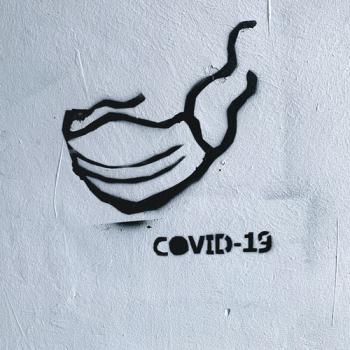
By Timothy Askew; reprinted from Inc. with the kind permission of Timothy Askew.
“God has given you one face and you make yourself another” – William Shakespeare
I like this simple definition of authenticity from Webster’s Dictionary. “[Authenticity is] being true to one’s own personality, spirit, or character.”
I’ve been thinking about business fads of late. We human beings do seem to have a lemming-like tendency to run with the crowd. We are social creatures. It’s comforting to be part of the pack.
Business fads are based around simple nuggets of truth–perspicacious insights that bring us up short, that jolt us out of the status quo complacency and well-worn assumption. When fads catch hold it may seem that suddenly every speaker, every CEO, and every “expert” is advising us, with assertive insistence, that__________(fill in the blank) is the way to business success.
There have been a number of these fads in recent years, including cults of failure, of ethics, of Six Sigma, of Conscious Capitalism, of diversity, of mindfulness. You name it. All initially good insights, these fads spread through the internet, the media, blogs, and business conventions like kudzu on a hot day in Georgia. They spread because each of these new ideas has a kernel of truth, a new startlement of originality. The problem is that each of these original ideas quickly becomes a cliche in the mad rush by everyone to be on board with the new new thing. The supposed outre then becomes quotidian.
Take the cult of failure. It has become trendy to brag about your business failures. There is even an international business convention called FailCon, a global talkfest on not making it. I’ve recently been getting invitations for something called “Fuck Up Nights” with much the same trope.
There is nothing wrong with this. It is useful and insightful to learn from our failures and have the courage to creatively and courageously fail. The problem comes when it becomes cool to brag about your failures en masse, as a badge of your business hipness, rather than as a useful experience among many others that coalesce in a mature, long-term, lived business philosophy.
It is not any single tool or insight that makes us wise or useful in business, but a constant integration of many penultimate truths. There is no silver bullet for business success and a centered business life. There is only the daily process of integrating many truths to make a cogent whole. It’s hard work and most of us tend to long for simple and simplistic answers, of which there are none.
Which brings me to authenticity.
I could not agree more that authenticity is the key to a new brand of empathetic corporate leadership. It most surely is. Empathetic leadership is needed to replace the increasingly less effective and old-fashioned command-and-control assumptions of traditional business executives.
And authenticity is the soul and center of empathetic leadership. The authenticity movement was initiated for me by Brene Brown’s lovely TED Talk on vulnerability back in 2010. [“The Power of Vulnerability”, Brene Brown, TED Talk] It has become the newest cool thing for a businessman to be. Whenever this happens you can count on a fundamental truth becoming a commonplace, an ersatz imitation of itself in pretty short order. Everyone wants to join the bandwagon.
Managerial talk about authentic leadership and emotional intelligence becomes an echo chamber occupied by cultural conformity and crowd following. Business leaders seek to embrace a popular meme that becomes a gobbling imitation of its initial wisdom, thereby vitiating its fundamental “truthiness,” as Stephen Colbert puts it. A shallow authenticity becomes like wearing a mass-produced T-shirt with the word “AUTHENTIC” printed on it. Like other business fads, authenticity becomes, then, a febrile chorus of cliche, a corporate circle jerk. The fakest people are the ones who brag loudest about being most real.
The truth is that leadership authenticity requires frequent change. It is a constant construction of spiritual discipline and private introspection. It is the product of daily courage to stay new and real and open, always being alert to the possibility that what was once authentic has become a mockery, a pale imitation of past personal truth, rather than the existential reality of each new day.
There is no business truth set in stone like the Ten Commandments. There is no rehearsing each day’s new personal truthiness. It is lived in the moments. Real authenticity is to take each day’s business journey naked on a tightrope without a net. (If interested in reading more on this, try my Inc. column of June 22, 2015, “The Downside of Authenticity.”)
Authentic leadership is inherently a developmental process of daily emotional weight-lifting, a process of being your real self when it is easier and so tempting to run with the herd, to be part of the gang, to be in with the in-crowd. Shakespeare said, “God has given you one face and you make yourself another.”
As Jungian psychologist James Hollis avers, “We are not here to fit in, to be well-balanced, or provide exempla for others. We are here to be eccentric, different, perhaps strange, perhaps merely to add our small piece, our little clunky, clunky selves, to the great mosaic of being. As the gods intended, we are here to become more and more ourselves.” Thank you, Dr. Hollis.
Image: Pixabay.
 Tim Askew is the owner of sales firm Corporate Rain International and a member of the Inc. Business Owners Council. He has several advanced degrees, and has been a tennis pro, actor, opera singer, Broadway producer, dishwasher, bartender, minister, and college assistant dean. Askew is the author of the new book The Poetry of Small Business (available on Amazon). @TimothyAskew
Tim Askew is the owner of sales firm Corporate Rain International and a member of the Inc. Business Owners Council. He has several advanced degrees, and has been a tennis pro, actor, opera singer, Broadway producer, dishwasher, bartender, minister, and college assistant dean. Askew is the author of the new book The Poetry of Small Business (available on Amazon). @TimothyAskew













